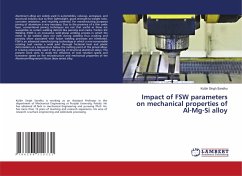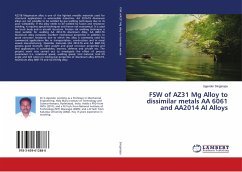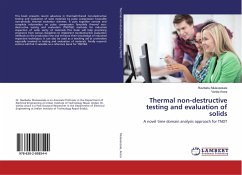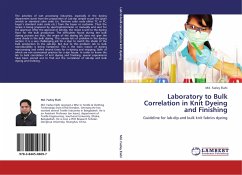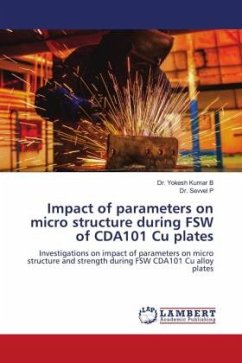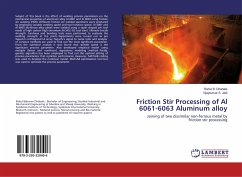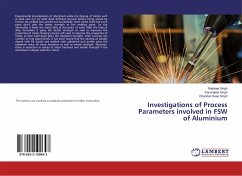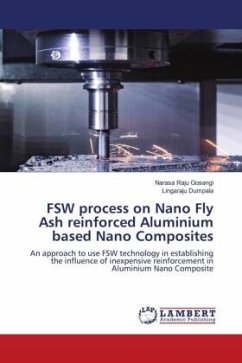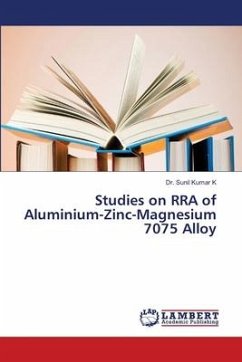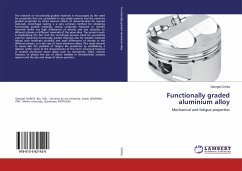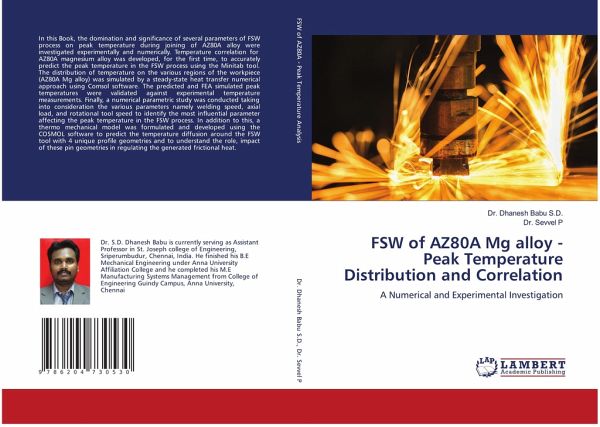
FSW of AZ80A Mg alloy - Peak Temperature Distribution and Correlation
A Numerical and Experimental Investigation
Versandkostenfrei!
Versandfertig in 6-10 Tagen
38,99 €
inkl. MwSt.

PAYBACK Punkte
19 °P sammeln!
In this Book, the domination and significance of several parameters of FSW process on peak temperature during joining of AZ80A alloy were investigated experimentally and numerically. Temperature correlation for AZ80A magnesium alloy was developed, for the first time, to accurately predict the peak temperature in the FSW process using the Minitab tool. The distribution of temperature on the various regions of the workpiece (AZ80A Mg alloy) was simulated by a steady-state heat transfer numerical approach using Comsol software. The predicted and FEA simulated peak temperatures were validated agai...
In this Book, the domination and significance of several parameters of FSW process on peak temperature during joining of AZ80A alloy were investigated experimentally and numerically. Temperature correlation for AZ80A magnesium alloy was developed, for the first time, to accurately predict the peak temperature in the FSW process using the Minitab tool. The distribution of temperature on the various regions of the workpiece (AZ80A Mg alloy) was simulated by a steady-state heat transfer numerical approach using Comsol software. The predicted and FEA simulated peak temperatures were validated against experimental temperature measurements. Finally, a numerical parametric study was conducted taking into consideration the various parameters namely welding speed, axial load, and rotational tool speed to identify the most influential parameter affecting the peak temperature in the FSW process. In addition to this, a thermo mechanical model was formulated and developed using the COSMOL software to predict the temperature diffusion around the FSW tool with 4 unique profile geometries and to understand the role, impact of these pin geometries in regulating the generated frictional heat.



